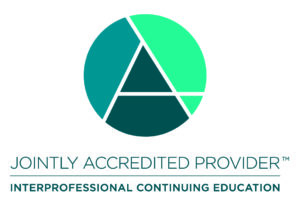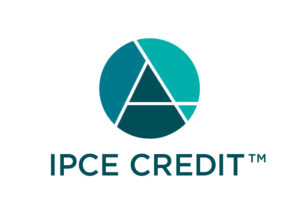Praxis Continuing Education & Training
ACT in Practice with Steven Hayes, PhD
23.5 CE credits available
Please read the complete course information below prior to registering.
Target Audience:
This course is for mental health professionals and students with an intermediate-advanced background in this area. This includes counselors, psychologists, social workers, behavior analysts, nurses and physicians, and anyone looking to learn ACT to use with clients. It’s relevant to those with introductory ACT experience, and those who’ve been using ACT for years as they can learn something new with regards to using ACT as a process-based therapy with their clients.
Schedule:
This activity offers 10 different modules as outlined below:
Module 1 - Preliminary Network (121 minutes)
Module 2 - Functional Analysis (141 minutes)
Module 3 - Functional Planning (122 minutes)
Module 4 - Acceptance and Defusion (120 minutes)
Module 5 - Present Moment and Self-as-context (121 minutes)
Module 6 - Values and Committed Action (139 minutes)
Module 7 - Hexadancing (102 minutes)
Module 8 - Practicing Reads Skills (125 minutes)
Module 9 - Reads Skills Test (118 minutes)
Module 10 - Assessing ACT Interventions (190 minutes)
Module 11 - Webinars (120 minutes)
Overall Objectives:
At the conclusion of this course, participants will be able to:
1. Make an ACT process-based diagnosis (functional analysis) and treatment plan
2. Create a preliminary network diagram for a client from their case description
3. Identify key ACT assessment measures
4. Assess the psychological flexibility of a client in session
5. Explain the Extended Evolutionary Meta Model
6. Use the Extended Evolutionary Meta Model to discuss clients’ psychological dimensions in light of evolutionary thinking and in relation to biophysiological and social factors
7. Create a functional analysis diagram from a client’s case description
8. Review three different approaches to creative hopelessness, based on the left, center, and right pillars of the ACT psychological flexibility model
9. Make a preliminary treatment diagram from a case description
10. Identify left-, center- and right-pillar psychological flexibility reads and interventions, in ACT role plays and real plays
11. Determine appropriate ACT responses to challenging statements from clients in sessions
12. Describe the process of hexadancing and explain why this can be a useful approach to using ACT
13. Differentiate between ACT-appropriate and ACT-inappropriate interventions in session
14. Identify different ways of integrating ACT with other important evidence-based models and methods
15. Discuss how to conduct teletherapy sessions following world-wide best practice
Grievance Procedures for CE Activities
Should a participant in the course be unsatisfied with the course, the participant should immediately contact our customer support team to file a grievance. Within five days, a customer support team member will contact the participant by email and/or phone and attempt to resolve the issue.
We will investigate and assess the issue from the perspective of the participant and every effort will be made to resolve the issue. If the issue is not resolved to the satisfaction of the participant, the participant will be offered a refund per the Refund and Cancellation Policy guidelines.
To file a grievance, please contact us at courses@praxiscet.com.
ADA Accommodations
To request accommodations for disabilities, please contact Praxis Continuing Education at courses@praxiscet.com.
Contact Information:
The Praxis team can be contacted at courses@praxiscet.com
Praxis Continuing Education
5674 Shattuck Avenue
Oakland, CA 94609 USA
CE Information:
This non-live internet activity is sponsored by Praxis Continuing Education and Training and is approved for 23.5 CE Hours by the organizations listed below. Praxis CET maintains responsibility for the program with the CE approvals outlined below.
Joint Accreditation: In support of improving patient care, Praxis Continuing Education and Training, Inc. is jointly accredited by the Accreditation Council for Continuing Medical Education (ACCME), the Accreditation Council for Pharmacy Education (ACPE), and the American Nurses Credentialing Center (ANCC), to provide continuing education for the healthcare team.
the Accreditation Council for Pharmacy Education (ACPE), and the American Nurses Credentialing Center (ANCC), to provide continuing education for the healthcare team.
IPCE: This activity was planned by and for the healthcare team, and learners will receive 23.5
Interprofessional Continuing Education (IPCE) credit for learning and change.
Nursing: Praxis Continuing Education and Training, Inc. designates this activity for a maximum of 23.5 ANCC contact hours.
Physicians: Praxis Continuing Education and Training, Inc. designates this enduring material activity for a maximum of 23.5 AMA PRA Category 1 Credits™. Physicians should claim only the credit commensurate with the extent of their participation in the activity.

Psychologists: Continuing Education (CE) credits for psychologists are provided through the co-sponsorship of the American Psychological Association (APA) Office of Continuing Education in Psychology (CEP). The APA CEP Office maintains responsibility for the content of the programs.
Social Workers: As a Jointly Accredited Organization, Praxis Continuing Education and Training, Inc. is approved to offer social work continuing education by the Association of Social Work Boards (ASWB) Approved Continuing Education (ACE) program. Organizations, not individual courses, are approved under this program. Regulatory boards are the final authority on courses accepted for continuing education credit. Social workers completing this course receive 23.5 clinical continuing education credits.
Drug and Alcohol Counselors: This course has been approved by Praxis Continuing Education and Training, Inc. as a NAADAC Approved Education Provider, for 23.5 CE hours. NAADAC Provider #165310, Praxis Continuing Education and Training, Inc. is responsible for all aspects of its programming.

National Counselors: Praxis Continuing Education and Training, Inc. has been approved by NBCC as an Approved Continuing Education Provider, ACEP No. 6759. Programs that do not qualify for NBCC credit are clearly identified. Praxis Continuing Education and Training, Inc. is solely responsible for all aspects of the programs.
Behavior Analysts: Praxis CET is an approved BACB ACE Provider # OP-17-2718.
NY Counselors: Praxis Continuing Education and Training, Inc. is recognized by the New York State Education Department's State Board for Mental Health Practitioners as an approved provider of continuing education for licensed mental health counselors #MHC-0198.
NY Social Workers: Praxis Continuing Education and Training, Inc. is recognized by the New York State Education Department's State Board for Social Work as an approved provider of continuing education for licensed social workers #SW-0467.
NY Psychologists: Praxis Continuing Education and Training, Inc. is recognized by the New York State Education Department's State Board for Psychology as an approved provider of continuing education for licensed psychologists #PSY-0002.
NOTE: Many state boards accept offerings accredited by national or other state organizations. If your state is not listed, please check with your professional licensing board to determine whether the accreditations listed are accepted.
CE Course Launch Date: 6/2020
Expiration Date/Next scheduled review date: 2/2026
Disclosure of Relevant Financial Relationships
Praxis Continuing Education and Training is responsible for the content, quality and scientific integrity of all CE activities certified for credit. When an educational activity is offered for medical (CME), Nursing (ANCC) and/or Psychology (APA) continuing education credit, participants must be informed as to the source, amount, nature, and disposition of any funding used to support the activity, whether in the form of educational grants, cash contributions, or in-kind contributions. Individuals in a position to influence course content must also disclose whether they have one or more relevant financial relationships with ineligible companies.
We define ineligible companies as those whose primary business is producing, marketing, selling, re-selling, or distributing healthcare products used by or on patients. There is no minimum financial threshold; individuals must disclose all financial relationships, regardless of the amount, with ineligible companies. We ask that discloses are made regardless of whether the individual views the financial relationships as relevant to the education. For more information on the Standards for Integrity and Independence in Accredited Continuing Education, please visit accme.org/standards.
All those in a position to control the content of an education activity are asked to disclose any relevant financial relationships they have with any ineligible companies.
There is no commercial support for this activity.
None of the planners or presenters for this educational activity have relevant financial relationship(s) to disclose with ineligible companies whose primary business is producing, marketing, selling, re-selling, or distributing healthcare products used by or on patients.
How to Obtain Your CE Certificate:
After completing the course, please follow these steps to access your course evaluation, post-test (when applicable), and CE certificate. To receive credit, you must complete the course in full, pass the post-test with an average cumulative score of 80% or higher, and complete the course evaluation. No partial credit will be awarded. Please read through all of the instructions below before proceeding.
- Once you have completed all the modules and have taken the post-test for each module, go to the “Evaluation” tab on the course menu.
- If you have passed the post-tests with a cumulative average score of 80% or higher, the course feedback evaluation will be made available to you on the Evaluation page. You will be allowed to retake each post-test only once if you do not pass with an 80% or higher average.
- After submitting the feedback evaluation, a button will appear that will allow you to download your certificate.
We encourage members to submit the feedback evaluation within 6 months of course completion to earn their CE certificate.
Technical Requirements:
In order to complete this course, attendees will need:
- A computer with a monitor, keyboard, and a mouse or a mobile device/tablet
- Speakers/headphones: either built‐in to your computer/device or external (plugged into your computer)
- An internet connection, either wired or wireless. A minimum connection speed of 3 megabits is required to stream clear, standard definition video.
- The course is supported on most up-to-date internet browsers (Google Chrome, Safari, Firefox, Microsoft Edge, Brave, etc.)
- A PDF viewer such as Adobe Acrobat Reader
- An email address
- [Optional] A mixed media player (such as iTunes/Windows Media Player) to listen to downloadable audio exercises. These are also available within the members area so this is not a strict requirement.
- [Optional] A printer or access to a printer (to print any of the PDFs, if desired)
- [Optional] A Facebook account for access to the ACT Immersion community group
References:
A complete list of course references can be found here, but here is a selection of current references that provide a summary of the evidence base for this course.
Thompson, M., Bond, F. W. & Lloyd, J. (2019). “Preliminary psychometric properties of the Everyday Psychological Inflexibility Checklist.” Journal of Contextual Behavioral Science, 12, 243–252. Doi: 10.1016/j.jcbs.2018.08.004.
Clarissa W. Ong, C. W., Lee, E. B., Levin, M. E., & Twohig, M. P. (2019). “A review of AAQ variants and other context-specific measures of psychological flexibility.” Journal of Contextual Behavioral Science, 12, 329–346. Doi: 10.1016/j.jcbs.2019.02.007.
Boyle, E. A., Li, Y. I., & Pritchard, J. K. (2017). “An expanded view of complex traits: From polygenic to omnigenic.” Cell, 169(7), 1177–1186. Doi: 10.1016/j.cell.2017.05.038.
Olfson, M., & Marcus, S. C. (2010). “National trends in outpatient psychotherapy.” American Journal of Psychiatry, 167(12), 1456–1463. doi: 10.1176/appi.ajp.2010.10040570
Molenaar, P. C. M. & Campbell, C. G. (2009). “The new person-specific paradigm in psychology.” Current Directions in Psychology, 18, 112–117.